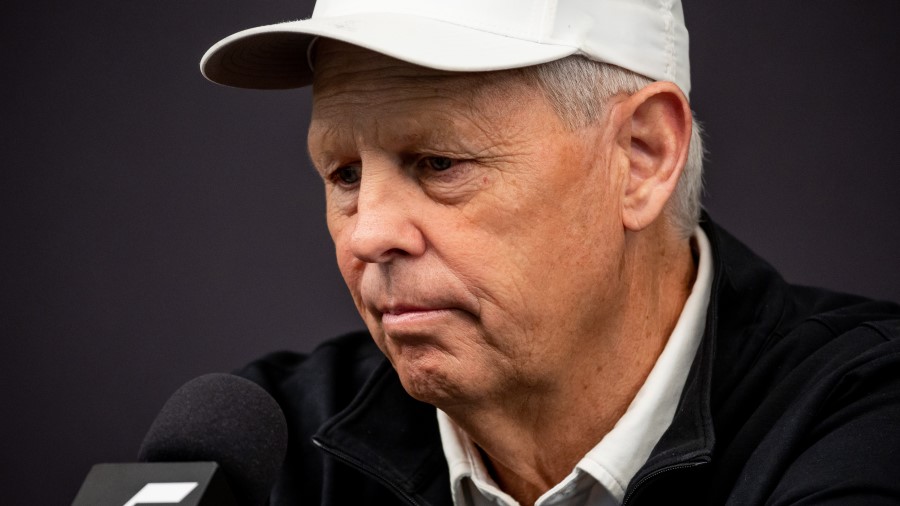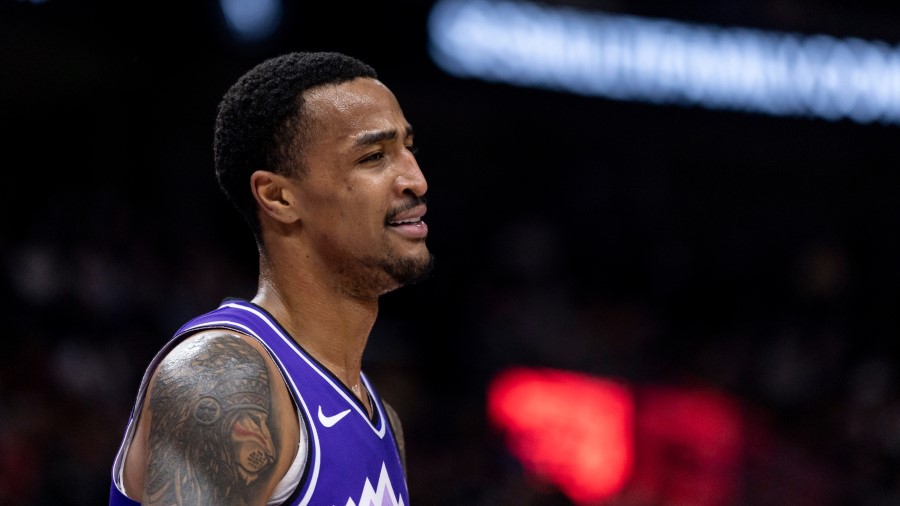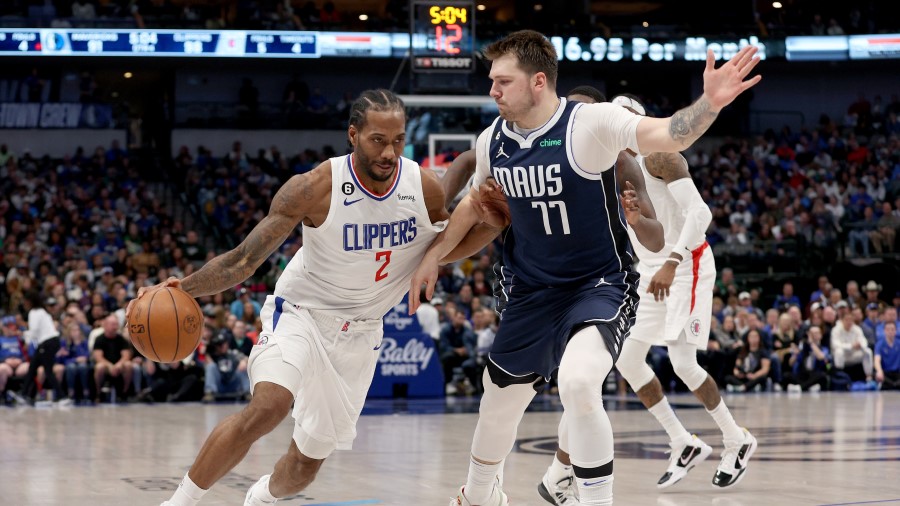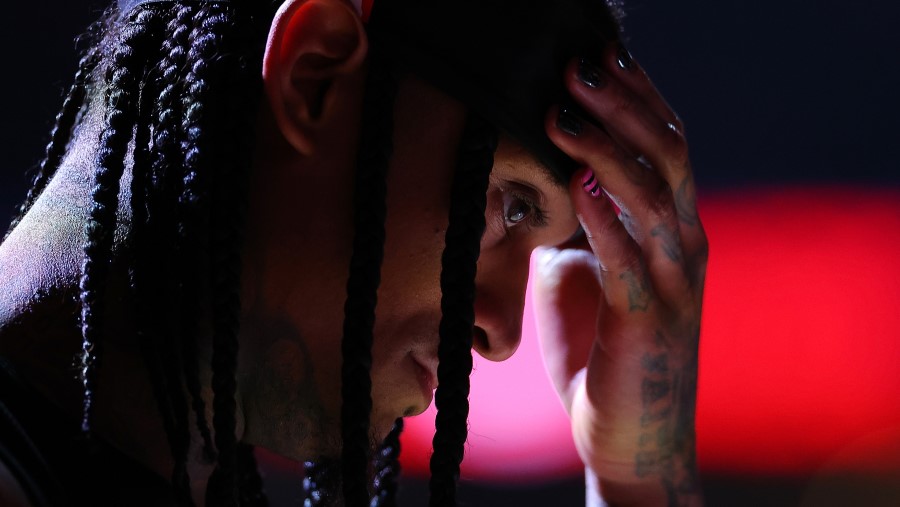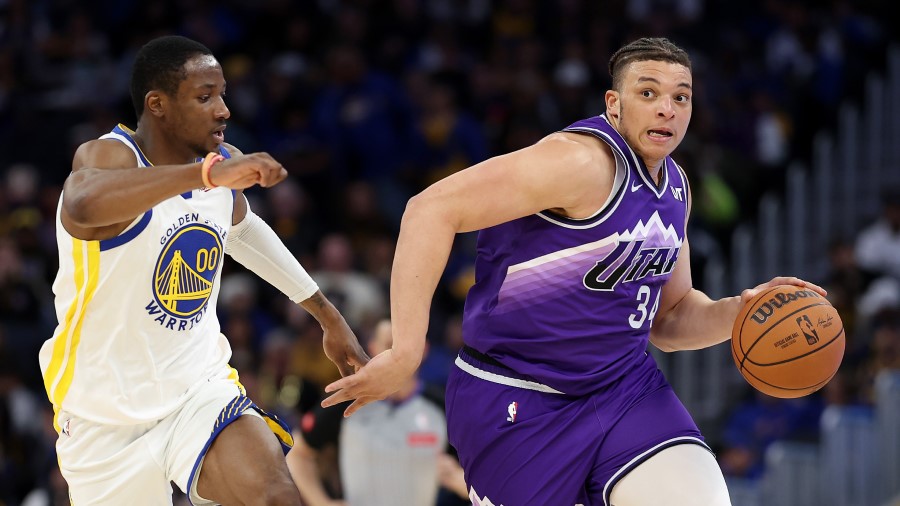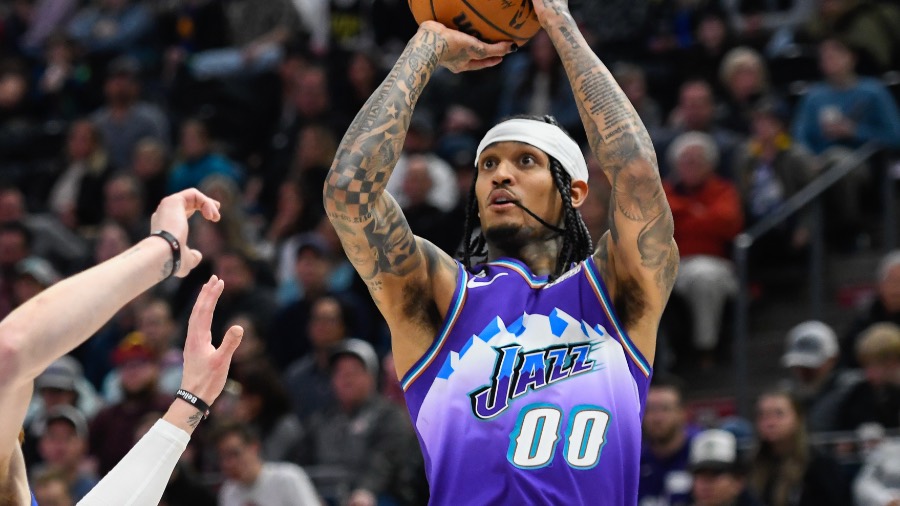Why Were Cavaliers Willing To Trade Collin Sexton?
Sep 16, 2022, 1:03 PM | Updated: 1:15 pm
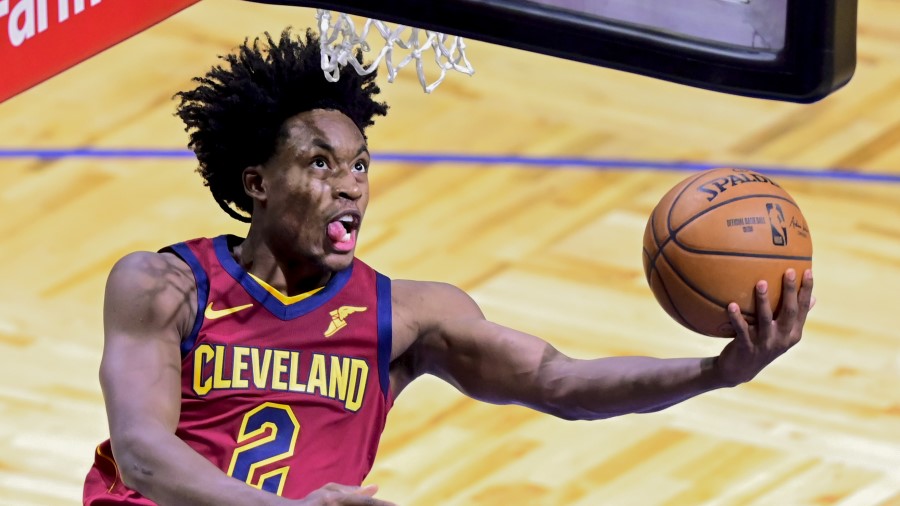
The Utah Jazz acquired Collin Sexton in a trade with the Cleveland Cavaliers (Photo by Douglas P. DeFelice/Getty Images)
(Photo by Douglas P. DeFelice/Getty Images)
SALT LAKE CITY – After the dust settled from the blockbuster trade that sent Donovan Mitchell from the Utah Jazz to the Cleveland Cavaliers, I found myself asking one major question. Why were the Cavs willing to trade Collin Sexton?
At first, this might seem like an easy answer. Mitchell is a three-time All-Star, one of the premiere postseason performers in the NBA, and is under team control for the foreseeable future.
But on second glance, there has to be more to the story. Not only were the Cavaliers willing to trade Sexton, they seemed happy to throw him in with forward Lauri Markkanen, lottery pick Ochai Agbaji, and three future unprotected first-round picks.
Ocahi Agbaji and Collin Sexton were officially introduced today by the @utahjazz, and both players are already embracing their new home. #TakeNote https://t.co/iVs9LwJHlh
— KSL Sports (@kslsports) September 13, 2022
So what’s the deal with Sexton? The closer I looked, the more questions I had.
The most obvious problem surrounding Sexton is the recent meniscus tear that sidelined him for the majority of the 2021-22 season. But on the full scope of NBA injuries, meniscus tears aren’t considered among the most serious.
They’re even less of an issue with 23-year-olds whose games aren’t solely dependent on acrobatic finishes above the rim.
Then, a quick glance at Sexton’s numbers only makes the question more confusing. In just his third season with the Cavaliers, the guard averaged an eye-opening 24.3 points per game on very respectable shooting percentages.
When looking back at Sexton’s 2018 draft class, only All-Stars Luka Doncic and Trae Young can beat the guard’s 20-point-per-game career scoring average.
Collin Sexton came into the league the year after Donovan. He will be entering his 5th season. He only played 11 games last season because of a torn meniscus. But the season before ('20-21) he had a career year 24.3 ppg, 4.4 apg, 37.7% 3pt.#TakeNote l @KSLSports pic.twitter.com/KpF4OxiP42
— Sam Farnsworth (@Samsworth_KSL) September 1, 2022
In fact, Donovan Mitchell, who is known for his scoring acumen didn’t break the 24 point per game mark until he was 23, one year Sexton’s senior during his best scoring season.
And, if there’s one major knock on Sexton that is obvious from afar it’s that he has the body of a point guard, standing only 6-foot-1, and the game of a shooting guard.
Here’s the thing, that’s also Donovan Mitchell’s biggest fault.
So what gives? Why was Sexton, who is younger, with a similar build, a similar skill set, similar numbers, and a much smaller contract, one of three players the Cavaliers threw in along with significant draft capital to land Mitchell?
To answer this question, I asked Chris Fedor, the Cavaliers beat reporter from the Plain Dealer in Cleveland in hopes of getting to the bottom of this Sexton mystery.
“I was talking with somebody in the organization recently and they were joking that they have spent more time in their career discussing Collin Sexton than any other player that they’ve ever been with,” Fedor said. “And I feel the same way.”
Sexton was the eighth overall pick by Cleveland the year after LeBron James left the Cavaliers for the Los Angeles Lakers, and was handed the impossible task of filling in for the greatest player in franchise history.
Though the rookie showed promise as soon as he stepped on the floor, Fedor acknowledged there has always been differing opinions about the guard’s true potential.
“This is a game about versatility, this is a game about positionless basketball, and he can play one position, shooting guard — a scorer really,” Fedor said. “He’s not a point guard, but he’s in a point guard’s body.”
Collin Sexton in his last healthy season:
— 24.3 PPG
— 4.4 APG
— 48/37/82%New first option in Utah. pic.twitter.com/Lz3Rusn8DP
— StatMuse (@statmuse) September 1, 2022
But again, those questions sound similar to the ones Mitchell has faced throughout his entire career in Utah.
To explain the difference, Fedor referenced another Jazzman with Cavalier ties.
“I think it’s just really difficult to put an honest value on the things that Colin brings to the table. He’s a good player, he is a good scorer, but how good can he be and what is his ideal role in today’s NBA?” Fedor asked. “It’s probably a sixth man coming off the bench that can be that explosive score, similar to a guy that you guys know well in Jordan Clarkson.”
That’s a strong delineation from Fedor and one that Jazz fans should be familiar with. Clarkson is a lights-out scorer and was given an endless allowance to shoot the ball, but the differences between him and Mitchell were obvious to fans who watched the two each night.
Clarkson’s scoring punch was a devastating blow as a secondary option off the bench, but without Mitchell, it wasn’t enough to be a primary weapon.
Ultimately, with the influx of young talent Cleveland brought in, Fedor said there was simply no room left for Sexton on the roster.
“As time went on, there were guys that the Cavs acquired in Jarrett Allen, Evan Mobley, and Darius Garland that just became more important to the Cavs success stylistically than what Collin brought to the table.”
So, as Jazz fans prepare to watch Sexton assume the heavy scoring burden left by their three-time All-Star, give yourself room to appreciate all the things he brings to the table, even if he isn’t Donovan Mitchell.

